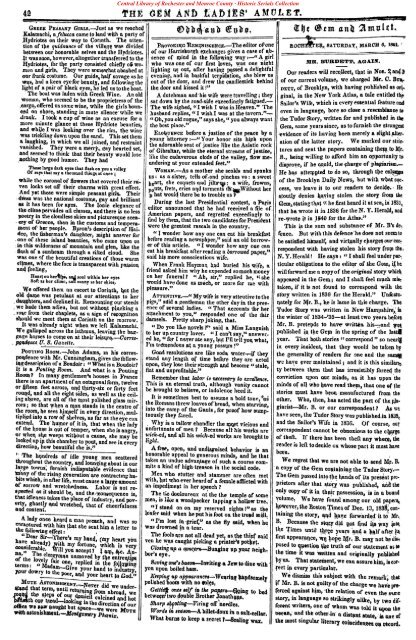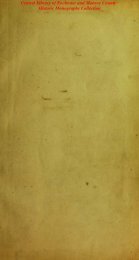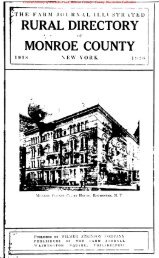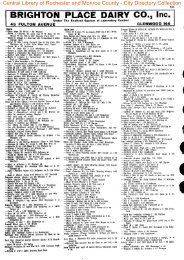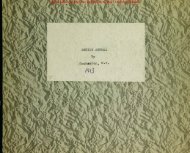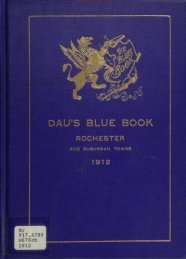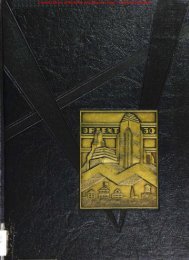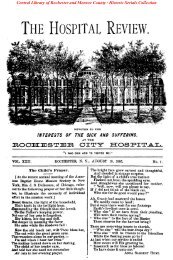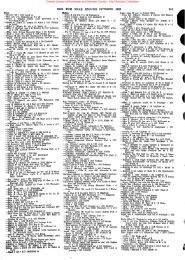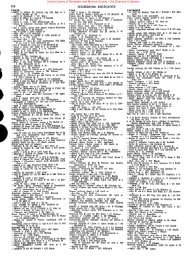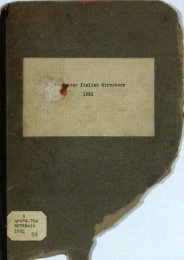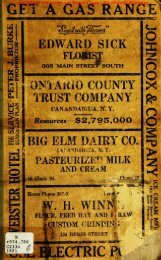LADIES' AMULET. - Monroe County Library System
LADIES' AMULET. - Monroe County Library System
LADIES' AMULET. - Monroe County Library System
Create successful ePaper yourself
Turn your PDF publications into a flip-book with our unique Google optimized e-Paper software.
GREEK PEASANT GIRLS.—Just us we reached<br />
Xalamachi, a felucca came to land with a party of<br />
.Hydriotes on their way to Corinth. The attention<br />
of the quidnuncs of the villBj;e was divided<br />
between our honorable selves and the Hydriotes.<br />
Jt was soon, however, altogether transferred to the<br />
Hydriotes, for tlje party cpnsisted chiefly 06 women<br />
and girls, They were somewhat abashed at<br />
oar frank costume. Our guide, hajf savage as he<br />
was, had a keen eye for beauty, and following the<br />
light of a pair of black eyes, he led us to the boat.<br />
The boat was laden with Greek Wine. An old<br />
woman, who seemed to be the proprietress of the<br />
cargo, offered us some wine, while the girls bounced<br />
on shore, standing in mute silence" while we<br />
drank. I took a cup of wine as an excuse for a<br />
more minute glance at these Hydriote beauties,<br />
and whije I was looking over the rim, the wine<br />
was trickling down upon the sand. This set them<br />
a laughing, in which we all joined, an-jjf they<br />
stand any length of time before they are acted<br />
upon, they lose their strength and become "stale,<br />
flat and unprofitable."<br />
Remember that labor is necessary to excellence.<br />
This is an eternal truth, although vanity cannot<br />
be brought to believe, or indolence heed it.<br />
It is sometimes best to assume a bold toners<br />
the Romans threw loaves of bread, when starving,<br />
into the camp of the Gauls, for proof how sumptuously<br />
they fared.<br />
. Why is a tallow chandler the mo^t vicious and<br />
unfortunate of men ? Because air his works are<br />
wick-etl, and aH his wick-ei works are brought to<br />
light.<br />
A free, open, and undisguised behavior is an<br />
honorable appeal to generous minds, and he that<br />
takes an undue advantage of such a course commits<br />
a kind of high treason in the social code.<br />
Men who. stutter and stammer are often met<br />
with, hut who ever heard of a female afflicted with<br />
an impediment in her speech ?<br />
The tic douloureux at the the temple of some<br />
men, is like a woodpecker tapping a hollow tree*<br />
"I stand on on my reserved rights!" as the<br />
loafer said when he put his foot on the tread mill.<br />
"I'm lost in grief," as the fly said, when he<br />
was drowned in a tear.<br />
The fools axe not all dead yet, as the thief said<br />
ven he was caught picking a printer** pocket.<br />
Closing up a concern—Bunging up yciur neighbor's<br />
eye.<br />
Saving one's oaeoa—Inviting a Jew to dine with<br />
you upon boiled ham.<br />
fc, SATURDAY/, MARCH 6, 1841.<br />
MR. BUBDETT, AGAIN.<br />
Our readers wilj recojlect, tb,at in Nos. % and 3<br />
of our current volume, we charged Mr. C. BD%-<br />
DETT, of Brooklyn, with having published as prf*<br />
ginal, in the New York Atlas, a tale entitled the<br />
Sailor's Wife, which in every essential feature and<br />
even in language, bore so close a resemblance to<br />
the Tudor Story, written for and published in the<br />
Gem, some years since, as to furnish the strongest<br />
evidence of its having been merely a slight alteration<br />
of the latter story. We marked our strictures<br />
and sent the papers containing them to Jfr.<br />
B., being willing to afford him an opportunity to<br />
disprove, if he could, the charge of plagiarism.—<br />
He has attempted to do so, through the cola^pt<br />
of the Brooklyn Daily News, but with, what sue,<br />
cess, we Jeave it to our readers to decide. • He<br />
s.toutfy denies paying stolen the story from the<br />
Gen^ stating that'.'. he first heard it at sea, in 183] K<br />
that be wrote it in 1836 for the N. Y. Herald, and<br />
re-wrote it in 1840 for the Atlas."<br />
This is the sum and substance of Mr. B's defence.<br />
But whhthis defencehedoes not seemto<br />
be satisfied himself, and virtually charges our correspondent<br />
with having stolen his story from the,<br />
N. Y. Herald! He says: " I shall feel under particular<br />
obligations to the editor of the Gem, ijhe<br />
will forward me a copy of the original story which,<br />
appeared in the Gem.; and I shall feel much mis?<br />
taken, if it is not found to correspond with the<br />
story written in 1836 for the Herald." Unfectnnately<br />
for Mr. B., he is lame in this charge. The<br />
Tudor Story was written in New Hampshire^ in<br />
the winter of 1834-'35—at least two years befpre,<br />
Mr, B. pretends to haw writtta Jus—and was,<br />
published in, the Gem in the spring of the Iattfl<br />
year. That bplh stories " correspond " so nearly<br />
in every incident, that they would be taken by<br />
the generality of readers for one and the samj$j|<br />
we have ever maintained ; and it is this similar^<br />
ty between them that has irresistibly forced the<br />
conviction upon our minds, as, it has upon the<br />
minds of a\\ who have read them, that one of the<br />
stories must have been manufactured from the<br />
other. Who, then, has acted the part of the.pla.<br />
giarist—Mr. B. or our correspondent ? Ae we.<br />
have seen, the Tudor Story was published in, 1835,,<br />
and the Sailor's Wife in 1836. Of course, our<br />
correspondent cannot be obnoxious to the charge<br />
of theft. If there has been theft any where, the<br />
reader is left to decide on whose part it must have<br />
been.<br />
We regret that we are not able to send Mr. B.<br />
a copy of the Gem containing the Todor Story.-<br />
The Gem passed intp the hands of its present proprietors<br />
after that story was published, aha the<br />
only copy of it in thejr possession, is in a bound<br />
volume. We have found among our old papery<br />
however, the Boston Times, of Dec. 13,1838*; containing<br />
the story, qnd haye forwarded it to Mr.<br />
B. Because the stqry did mt fi^d ij$ way Jnta<br />
the Times until three years and a h^lf after it*<br />
first appearance, w^ hop'.e. ]^r. B. may notb,edis,<br />
posed to q,u«sUpn *h,e truth of our statement as 1«<br />
the time it was written and originally published<br />
by us. That statement, we can assure him, is corf<br />
ect in every particular.<br />
Keeping up appearances-• Wearing handsomely We dismiss this subject with the remark; that<br />
polished boots with no flbles. "* jf Mr. B. is not guilty of the charge we have pre-<br />
Geltitik ones self to the papers.—;@pjng to bed ferred against him, the relation of even the sime<br />
bet ween-two double Brother Jonathans.<br />
story, in language so Strikingly alike, by two dif-<br />
Sharp sfyooting—Firing off needles.<br />
ferent writers, one of whom was told it upon the<br />
Words in season—A billet-doux in a salt-cellar.<br />
ooean, and the other 4n a distant state,* one of<br />
What burns to keep a secret ?—Sealing wax.<br />
the most singular literary coiocideitteaoiji record.


